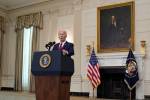Unions push a new tax on Nevadans
Well, that didn’t take long.
On Tuesday, the Nevada State Education Association filed a new petition to impose a 2 percent tax on business revenue. The day before, a Carson City judge had thrown out the teacher union’s first attempt to create a margins tax, ruling the petition violated a state law that limits initiatives to a single subject. In addition to creating a tax that would drain an estimated $800 million per year from Nevada’s battered private sector, the petition had sought to require the state to report to the public each company’s tax payment.
The new petition language deletes the disclosure mandate. NSEA Executive Director Gary Peck said petition circulators would start collecting signatures next week. If the union can obtain 72,234 valid signatures from registered voters by Nov. 13, the petition will advance to the Legislature in February. Lawmakers are expected to reject or ignore the petition, which would put the plan on the November 2014 ballot.
The NSEA believes the idea is a sure-fire winner. The union says its own polling shows 2-to-1 support for the tax, which would be applied to all business revenue beyond $1 million each year while allowing some deductions. “The people of Nevada will enact the margins tax because they understand the system is broken and we need to create a dedicated stable source of funding for K-12 schools,” Mr. Peck said.
But collecting signatures is one thing. Winning votes is another.
For one thing, the tax is based on revenues, not profits. That means even money-losing and break-even enterprises would be on the hook for job-killing tax payments. Once the business community has an opportunity to organize opposition and educate the public about the economic ramifications of the margins tax, voters might be less eager to support a ballot question that could boost joblessness in the state with the nation’s highest unemployment rate.
Voters also will be wary of the lack of accountability within the ballot question. If the proposal passes, there is no guarantee the Legislature would pour every dollar into schools. There would be nothing to stop lawmakers, for instance, from handing out huge “catch-up” pay raises to existing teachers instead of hiring new ones.
This same lack of accountability doomed a 2004 NSEA petition that sought to amend the Nevada Constitution to require K-12 spending at or above the national average. Voters narrowly rejected Question 2 – and that was when Nevada’s economy was booming.
Mr. Peck is correct that “the system is broken.” But it has little to do with the state’s tax structure or how much money we spend on schools. In fact, it has a lot more to do with barriers built by teacher unions – for example, the Clark County Education Association’s insistence on eliminating the jobs of young teachers so senior educators could collect pay raises.
Money alone won’t lift student achievement. The NSEA has a much tougher sell than it thinks.


















